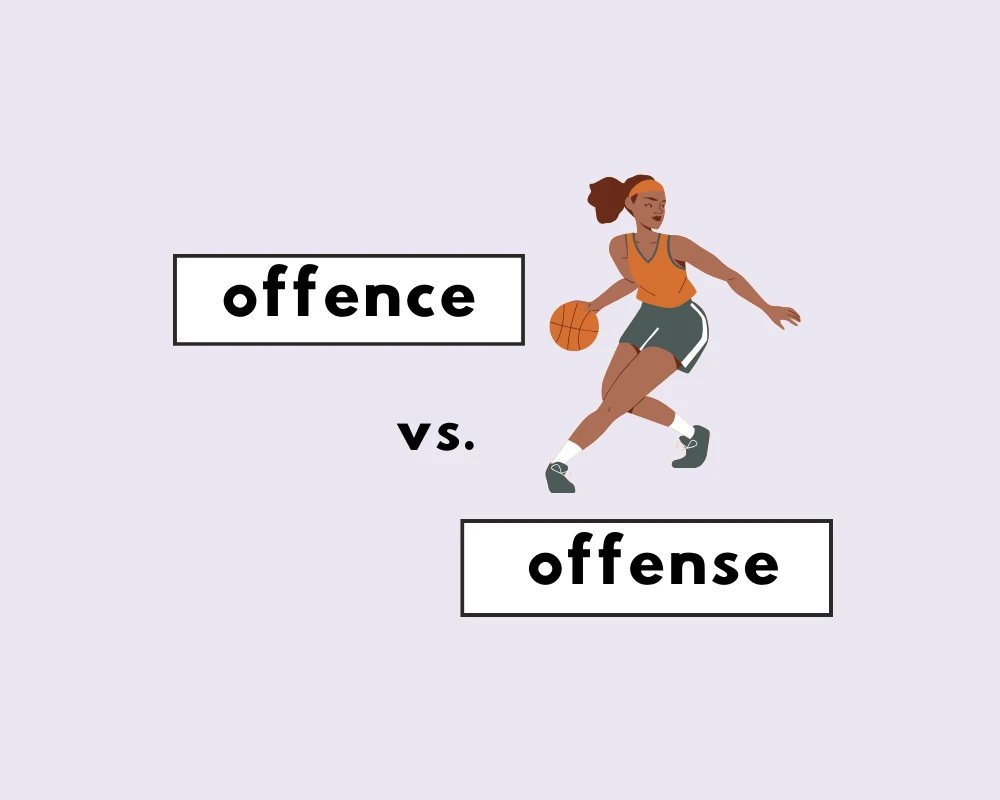Contents
Toggle
Offence vs. offense
Offence and offense mean the same thing and refer to a crime or violation; being insulted, or the sports position to score on an opponent.
The spelling varies on whether you’re writing in UK or US English:
- UK English spells “offence” with a “c”.
- US English spells “offense” with an “s”.
| UK English | US English |
| We were stopped by the police for a traffic offence. | His conduct is an offense to public decency. |
What does offence mean?
Offence (or offense in US English) is a noun that can refer to:
- An illegal act; e.g., “These people have been charged with public order offences“.
- The feeling of being upset or angry at something that somebody has said or done; e.g., “I’m sure he meant no offence when he said that“.
Other words with “-ce”/”-se”
| UK English | US English |
| defence | defense |
| offence | offense |
| licence | license |
Other forms of offence/offense
| noun | offence/offense |
| verb | offend (verb forms: offends, offended, offending) |
| adjective | offended, offensive |
Sentences with offence/offense
The photo may cause offence/offense to some people.
Don’t be so quick to take offence/offense.
He has been arrested for a serious offence/offense.
New legislation makes it an offence/offense to carry guns.
Sentences with offence/offense in the media
The 49ers are running the offense that people think Kansas City still runs.
—Dieter Kurtenbach, The Mercury News, 3 Feb. 2024
September ended with the Dolphins hanging 70 points on Denver and observers asking whether this would become one of the most prolific offenses in NFL history.—Barry Jackson, Miami Herald, 2 Feb. 2024
She had already been fined for the same offense previously in Sweden.
—TIME, 2 Feb. 2024
Synonyms of offence/offense
- breach
- violation
- trespass
- misdemeanour
- transgression
- sin
- wrongdoing
- infraction
- misdeed
Phrases with offence
- statutory offence
Origin of offence
From Etymonline on offence:
Late 14c., “hurt, harm, injury, pain;” also “breach of the law, wrongdoing; transgression against God, sin;” also “the causing of displeasure, act or fact of wounding the feelings of or displeasing another;” also “displeasure, annoyance, umbrage,” from Old French ofense “offense, insult, wrong” (13c.) and directly from Latin offensa “an offense, injury, affront, crime,” literally “a striking against,” noun use of fem. past participle of offendere (see offend).
Learn more about US English vs. UK English
Sources
- Harper, Douglas. “Etymology of offence.” Online Etymology Dictionary Accessed 13 February, 2024.
- Oxford Learner’s Dictionary, offence.










